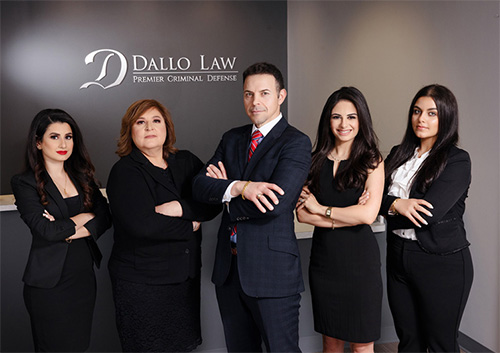Fentanyl is a potent synthetic opioid. It is an analgesic, which means it is typically prescribed for the treatment of severe, chronic pain like cancer. It is estimated to be 50-100 times more potent than morphine and about 50 times more potent than heroin.
The connection between fentanyl and the opioid epidemic lies in its abuse and illicit distribution. While fentanyl can be legitimately used in medical settings under careful supervision, it has also been increasingly associated with a surge in overdose deaths when misused or abused. Fentanyl’s ease of production, combined with its potency, have resulted in a violent and unregulated drug trade that results in poorly made and dangerous fentanyl being added to unsuspecting customers.
Bloomfield Hills Attorney for Fentanyl Possession
If you have been arrested for drug possession in Michigan, contact Dallo Law, P.C. to obtain competent legal representation. Your freedom depends on your defense attorney’s actions early in the case and the strategy he or she uses throughout the investigation and prosecution. Attorney J. Dallo at Dallo Law, P.C. and his legal team understand the complexity of drug possession cases, and he knows how to defend your rights.
You have the right to an attorney who will use every resource available to fight for you. Attorney Dallo is prepared to obtain the best possible outcome for your case. Reach out to Dallo Law, P.C. at (248) 283-7000 to schedule your first consultation.
Our firm accepts clients throughout the greater Oakland County and Macomb County area including Pontiac, Troy, Waterford Township, Oakland Charter Township, Royal Oak, Clarkston, Southfield, and Bloomfield Hills.
Fentanyl Information Center
- Understanding the Opioid Crisis
- Understanding Fentanyl Possession in Michigan
- Penalties for Fentanyl Possession in Michigan
- Common Defenses for Fentanyl
- Frequently Asked Questions
- Additional Resources
- Hire a Fentanyl Defense Lawyer in Bloomfield Hills, Michigan
Understanding the Opioid Crisis
The opioid crisis generally refers to what the United States Federal Government perceives as a widespread and escalating problem involving the misuse and addiction to opioid drugs. Opioids are a class of drugs that include both prescription medications, such as oxycodone, hydrocodone, and morphine, as well as illegal substances like heroin. These drugs act on the opioid receptors in the brain and spinal cord to produce pain relief and, in some cases, a sense of euphoria.
The crisis has its roots in the over-prescription of opioid painkillers in the late 1990s and early 2000s. Pharmaceutical companies marketed these drugs as safe and non-addictive, leading to a significant increase in their use. Many individuals became addicted to prescription opioids, and as efforts were made to restrict their availability, some turned to illicit opioids like heroin as a cheaper and more accessible alternative. Fentanyl, a potent synthetic opioid, has played a particularly troubling role in the opioid crisis. It is estimated to be 50 to 100 times more potent than morphine and is sometimes mixed with other drugs without the user’s knowledge, leading to a higher risk of overdose. Illicitly manufactured fentanyl has been a major contributor to the rising number of opioid-related deaths.
The opioid crisis has had devastating consequences, including a surge in overdose deaths, strained healthcare resources, and significant social and economic impacts. Efforts to address the crisis involve a combination of prevention, treatment, and harm reduction strategies, as well as increased regulation of opioid prescribing practices.
The crisis also has its roots in military personnel, which have been over-prescribed opioids for decades, resulting in a $50 billion lawsuit against Johnson & Johnson, Endo, Teva and Allergan.
Fentanyl Possession
The laws surrounding the possession of controlled substances are codified in Michigan’s Public Health Code, Section 333.7403. According to state code, possession of a schedule 2 substance (which fentanyl falls under), is punished heavily by federal and state law enforcement.
It is worth noting that illegal possession of fentanyl extends to its use as an additive in other drugs. This includes the use of fentanyl in marijuana or CBD cartridges, the presence of which may result in as much as 4 years in prison and up to a $25,000 fine.
Penalties for Fentanyl Possession in Michigan
Fentanyl is classified under Section 333.7214 of the Michigan Public Health Code. It is a schedule 2 drug, and possession of any amount of the drug, including as an additive, is punishable by:
- Up to 10 years in prison and/or
- A $25,000 fine
In addition, those convicted of any type of drug possession may be responsible for attending treatment programs, and repeat offenders may face increased sentences.
Common Defense Strategies for Fentanyl Possession in Michigan
Possession of fentanyl, known scientifically as N-phenyl-N-[1-(2-phenylethyl)-4- piperidinyl]propenamide, can be a difficult charge to dispute. Depending on the client’s circumstances, a defense lawyer may focus on how the police obtained evidence of the client’s fentanyl or the lawyer may argue that the fentanyl was necessary as a medical condition.
The following are a few of the more common defenses a lawyer may employ:
- Unlawful Search and Seizure: – If law enforcement conducted an unlawful search and seizure, violating your Fourth Amendment rights, evidence obtained during such an action may be deemed inadmissible in court.
- Lack of Possession: – It might be possible to argue that you did not have actual or constructive possession of the fentanyl. For example, if the drugs were found in a shared space or a vehicle with multiple occupants, proving ownership can be challenging.
- Illegal Traffic Stop or Arrest: – If the traffic stop leading to the discovery of the drugs was conducted illegally or if there were issues with the arrest process, it could be grounds for a defense.
- Lack of Knowledge: – Proving that you were unaware of the presence of fentanyl may be a defense. This could be challenging but may be applicable in certain circumstances.
- Entrapment: – If law enforcement induced or coerced you into possessing or acquiring fentanyl, an entrapment defense may be considered.
- Crime Lab Analysis Issues: – Challenges to the accuracy or reliability of the crime lab analysis that identified the substance as fentanyl could be raised as a defense.
- Medical Necessity: – In some cases, individuals may have a valid medical prescription for fentanyl. Providing proof of a legitimate prescription could be a defense against possession charges.
It is strongly recommended to consult with a qualified criminal defense attorney who can assess the details of your case and provide appropriate guidance based on the relevant laws and precedents.
Q & A
Q: Do I have to let the police search my car?
A: If your car is searched during a traffic stop, you have the right to refuse a search. This refusal can mean the difference between a traffic citation and a felony charge. However, if police have good reason to suspect that you have controlled substances in your car, such as being able to see a blunt or bong, then police can wait for a K-9 unit or conduct a reasonable search and seizure.
Q: Can I be charged with possession if the fentanyl wasn’t mine?
A: Yes, individuals can be charged with possession even if the fentanyl wasn’t directly on their person. Constructive possession, where someone has control or access to the drug, may lead to charges.
Q: Can I challenge the evidence if the police conducted an illegal search?
A: Yes, evidence obtained through an illegal search may be challenged in court. If law enforcement violated your Fourth Amendment rights, the evidence could be deemed inadmissible.
Q: What defenses are available against fentanyl possession charges?
A: Common defenses may include challenging the legality of the search, asserting lack of possession, questioning the validity of lab results, and demonstrating lack of knowledge about the presence of fentanyl.
Q: Can I use a prescription as a defense if I was prescribed fentanyl by a doctor?
A: Yes, having a valid prescription for fentanyl could be a defense. It’s crucial to provide evidence of a legitimate medical need and a lawful prescription.
Q: How much fentanyl constitutes a criminal offense in Michigan?
A: Possession of any amount of fentanyl that is not for medical or scientific purposes is considered a criminal offense in Michigan.
Q: What should I do if I’m facing charges for fentanyl possession in Michigan?
A: Seek legal advice immediately. Consult with an experienced criminal defense attorney who can assess the details of your case, explain your rights, and guide you through the legal process.
Additional Resources
OCHN – This link is a combination of resources from the Oakland Community Health Network, including a Sober Support Unit and the Recovery, Information Support and Education (RISE) center contact information.
Substance Abuse Directory – Maintained by the Michigan Mental Health Network, this link is a list of substance abuse treatment facilities in Oakland County.
Macomb County Community Mental Health – Macomb County provides mental health treatment and prevention services including recovery housing, peer support services, case management and early intervention. Maccomb County also provides a list of recovery centers: Live Rite, Recovery United Community Center.
The Right Connection – A list of recovery and connective services managed by the Macomb Intermediate School District. Connections are sorted by situation and provide the name of the group, phone number and email.
Bloomfield Hills Fentanyl Possession Lawyer | Oakland County, MI
If you have been arrested for fentanyl possession, your future and freedom are at stake. Most controlled possession charges in the State of Michigan is prosecuted harshly and if convicted, you may face years of imprisonment and stiff fines. In a situation such as this, you need a competent criminal defense attorney that can fight for the justice you deserve. Turn to Dallo Law, P.C. for skilled legal guidance.
With our firm representing you, you will have the best possible chance at minimizing the penalties if not beating the criminal charges altogether. Call us now at (561) 557-8686 to set up your first consultation.
Dallo Law, P.C. has offices located in Bloomfield Hills, and accepts clients throughout the greater Oakland County and Macomb County area.









